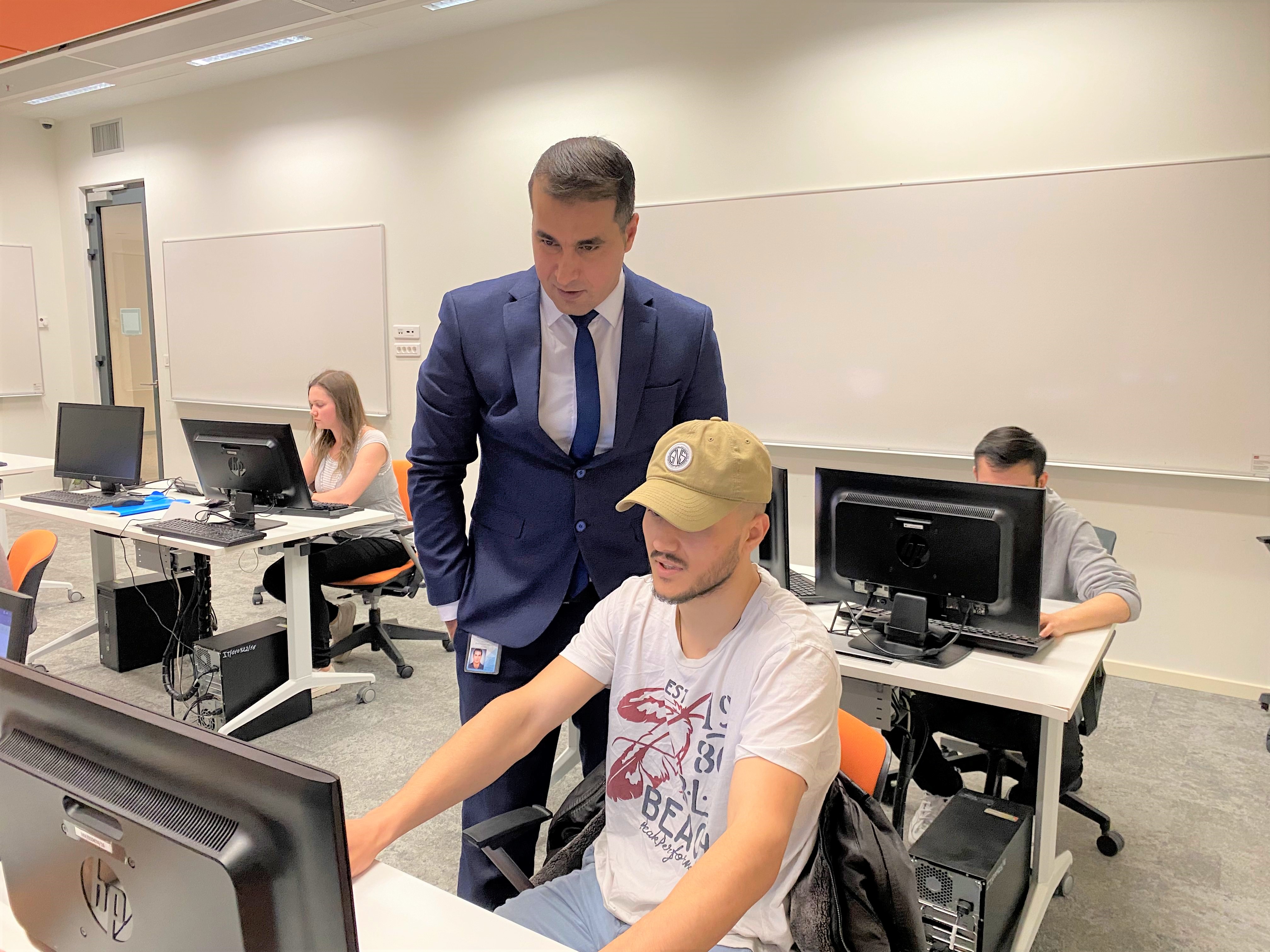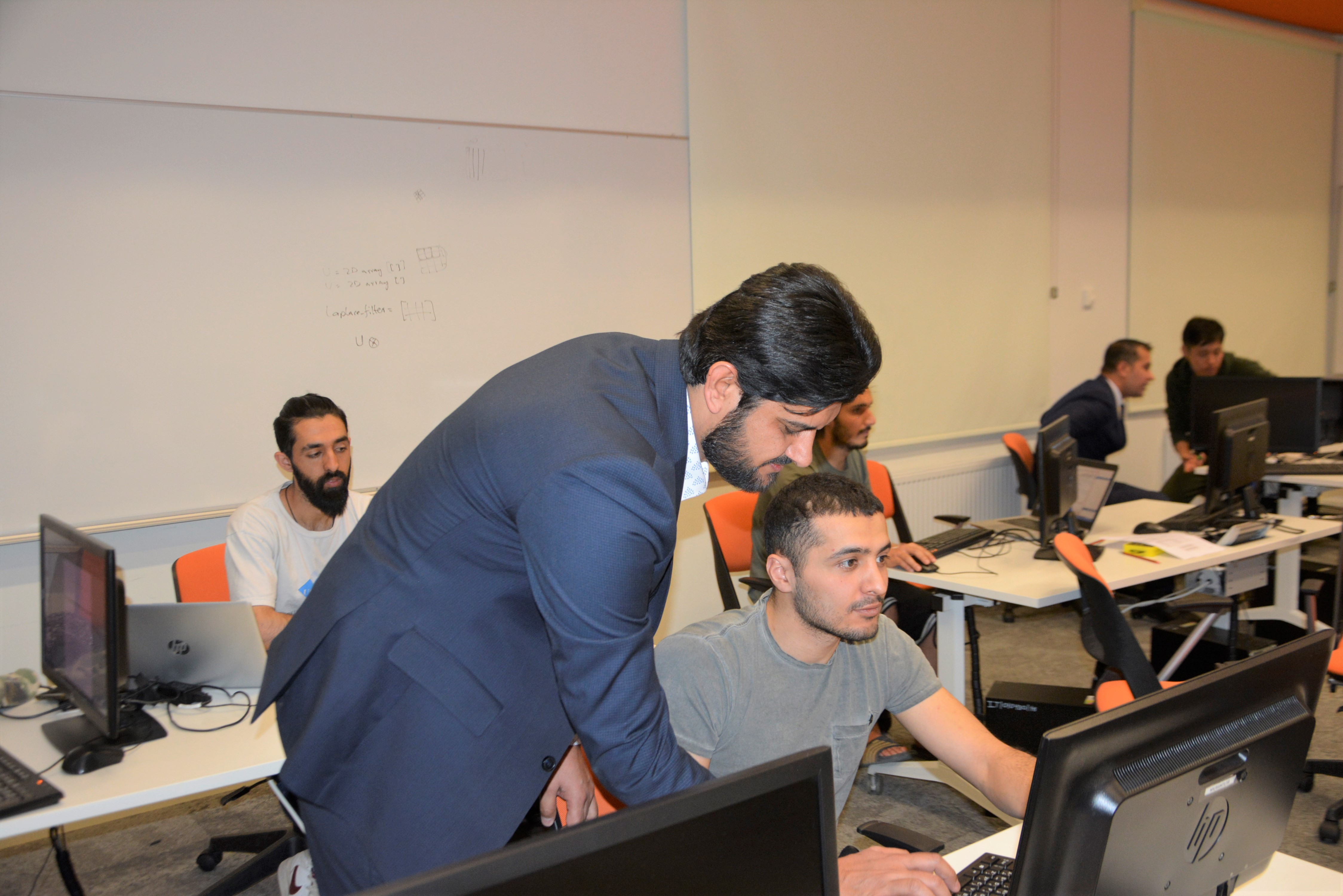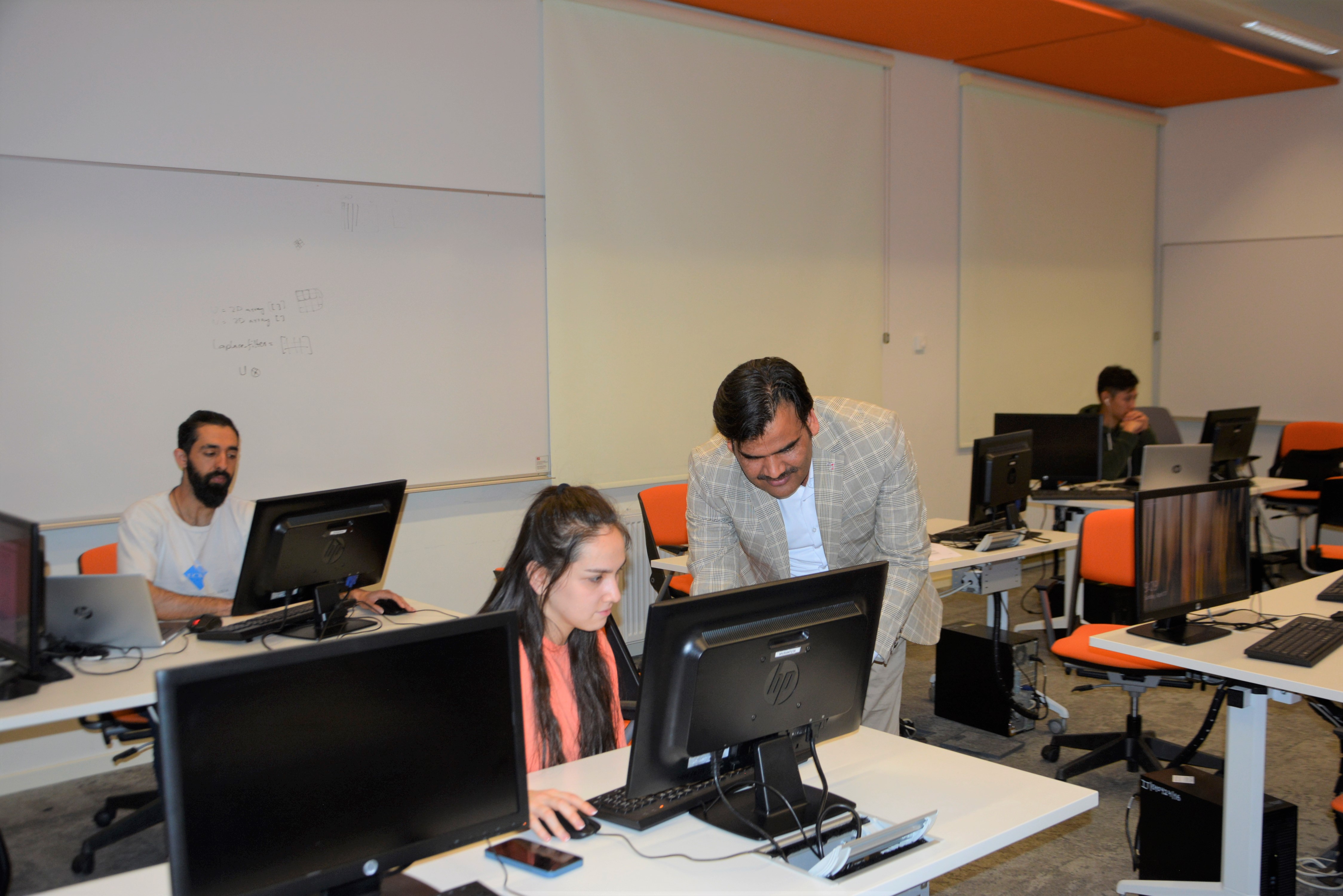
Pathway to Innovation: UCA Students Setting Benchmarks in IT Research
Innovation is a continuous process that has been embraced by the human race for centuries. It is an endless journey that consists of small improvements while aiming to capitalize on huge opportunities down the road. Either a person comes up with a new way of thinking or innovates a new technology, the end-product remains the addition of value that leads to improving the overall quality of life.
With the establishment of the University of Central Asia (UCA) among the high mountains of Tian Shan in Naryn and the Pamirs in Khorog, the University aims to educate young minds from nations to be able to compete in a rapidly evolving world.
As the second cohort of UCA’s School of Arts and Sciences comes closer to their graduation, the Computer Science students have set a benchmark by implementing socially conscious innovative models during their final dissertation projects. From developing a multi-chain token using Blockchain technology to proposing an efficient methodology for brain MRI classifications, the Class of 2022 is graduating with a dynamic set of ideas, skills and techniques to effectively compete in the global market.
Mehmood Yar Baig, one of the students at UCA, has developed a technique to detect deepfake videos on the internet. “With the growth of cybercrime and fake news, it has become even more important for organisations to distinguish between real news and propaganda. Using the decisive machine-learning algorithms, this tool can assist in identifying if the video is featuring a real or a fake person.”
Inspired by the concern of energy crisis and climate change, Sarvinoz Toshpulotova has developed a smart methodology of predicting energy consumption in homes. Using regression-based learning techniques, Sarvinoz has developed a technology to replace manual labor with a software that simultaneously monitors consumption and controls wastage. She has tested four models and the best results have been delivered by the Classification and Regression Tree.
Among several novel projects is a proposed methodology by Jawad Haider of an efficient brain MRI classification. “Brain MRI is the first step towards detecting brain tumor. To reduce the complexity of the process, the proposed model performs preprocessing, feature extraction and classification by removing unnecessary information and providing good quality MRI images with reduced noise. The result provides a simplified response of whether the MRI is normal or not.” Jawad’s proposed method achieves 97.14% accurate results using Decision Tree model.
While cryptocurrency’s future is still a question, Kishvar Afzunov, has developed a multichain token using Blockchain technology. Known for its security and decentralized platform, the model can be implemented within organisations for activities, such as, voting. “There would be no central subject in the online community as anyone who has a token will have the right to vote.” The technology defeats many destructive human traits that lead to inaccurate results and manipulation.
Expanding the scope of student projects, Attique Ahmad, has simulated biological patterns using Gray-Scott model. “As nature exhibits a vast diversity of structures within living and non-living organisms, I have been always intrigued by the thought of these organisms sharing similar mathematical patterns.” Attique’s project widens the possibility of allowing students and professionals from various fields to be able to study complex organisms. The simulation has been proven to benefit the research community in proposing treatments in the field of medicine.
Based in rural locations, one of the primary objectives of UCA is to provide equal and quality access to education. Valeriya Nikiforova has developed a platform of a free digital library for underprivileged communities. Lack of access to high-speed internet prevent people from developing regions to realise their full potentials, Valeriya’s platform is a low-cost solution to the limitations in remote regions. “The significant difference between this platform and other online sources is that the materials will be downloaded to a local server which can then be accessed by anyone connected to it.”
The soon-to-be graduates of the University of Central Asia are prepared to leave a mark on history with a passion for social responsibility and applying learned skills and techniques for the benefit of Central Asia and beyond.















